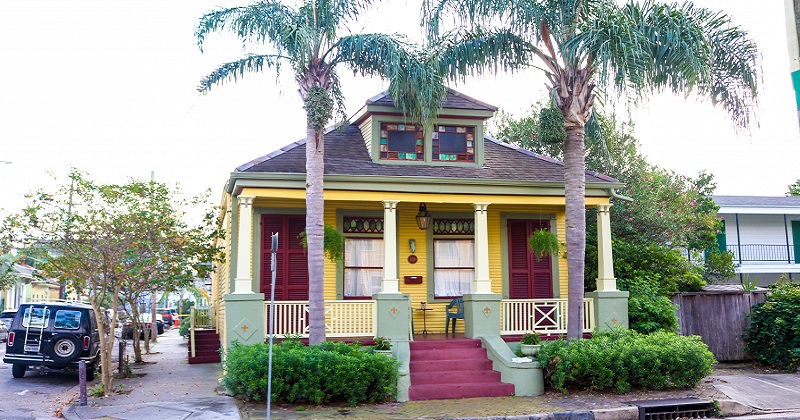
Are you buying your first home in New Orleans and have questions about how homeowners insurance works? The Realtors at Satsuma have you covered.
A Guide for First-Time Homebuyers in New Orleans
Homeowners insurance covers both damage to property and liability (legal responsibility) for injuries or property damage that the policyholders, their family, and their pets cause to other people.
A lender will require anyone who is financing the purchase of a home to buy homeowners insurance before closing on the mortgage, and in most instances, buyers will be asked to provide proof that they’ve paid for at least one year’s worth of homeowners coverage. Many buyers choose to set up an escrow account to pay the mortgage, property taxes, and homeowners insurance in periodic installments to avoid paying large sums all at once.
The Fundamentals of Homeowners Insurance
A typical homeowners insurance policy includes four important kinds of coverage:
- Pays the costs to fix or rebuild a home, garage, shed, or gazebo that is destroyed by fire, hurricane, hailstorm, lightning, or other disasters pursuant to the policy. It does not cover damage resulting from flooding, earthquakes, or normal use.
- Personal belongings. Covers the loss of furnishings, clothing, and other personal items that are stolen or destroyed by fire, hurricane, or other insured events. Personal belongings coverage applies to belongings anywhere in the world, unless the policyholder declined off-premises coverage.
- Protects against legal actions for bodily injury or property damage that the policyholder, his family, or his pets caused to others. This coverage pays up to policy limits for the costs of defending the policyholder in litigation as well as any court awards.
- Living expenses. Covers the costs of living away from home should the house be inhabitable due to fire, storm, or other damage. Items covered typically include lodging, meals, and other expenses incurred while a home is being repaired or rebuilt.
Comparing Homeowners Coverage
Although homeowners policies are relatively standard, there are some differences.
- HO-1 policies are inexpensive, but provide very limited coverage and are not widely available.
- HO-2 policies are designed to cover those who own mobile homes.
- Those who own the home in which they live can choose from several types of policies, the most popular being an HO-3, which provides broad coverage for the structure of the home and personal belongings, as well as personal liability.
- Owners of multi-family homes in New Orleans usually choose an HO-3 policy with an endorsement that will cover the risks associated with having renters.
- HO-4 policies are designed for those who rent the home in which they live.
- Owners of condominiums and cooperative units choose HO-6 policies, which provide coverage for belongings and the structural parts of a condo or co-op that the insured owns.
- HO-8 policies cover older homes.
Homeowners insurance offers three levels of coverage:
- Actual cash value, which will pay to replace a home or belongings, minus depreciation.
- Replacement cost, which pays to rebuild or repair a home or replace possessions, with no deduction for depreciation.
- Guaranteed/extended replacement cost, which pays whatever it costs to rebuild a home as it was before the disaster, even if the cost exceeds the limits of the policy.
Some companies offer an extended (but not guaranteed) replacement cost policy that will pay a certain percentage over policy limits to rebuild a home, typically 20 percent to 25 percent more. Guaranteed and extended replacement-cost policies provide the best financial protection against disaster, but they are also more expensive and may not be available in all states or from all companies.
Are you buying your first home in New Orleans and still have questions about homeowners insurance? For valuable advice, contact the experienced agents at Satsuma Realtors to discuss your real estate investment needs and goals.